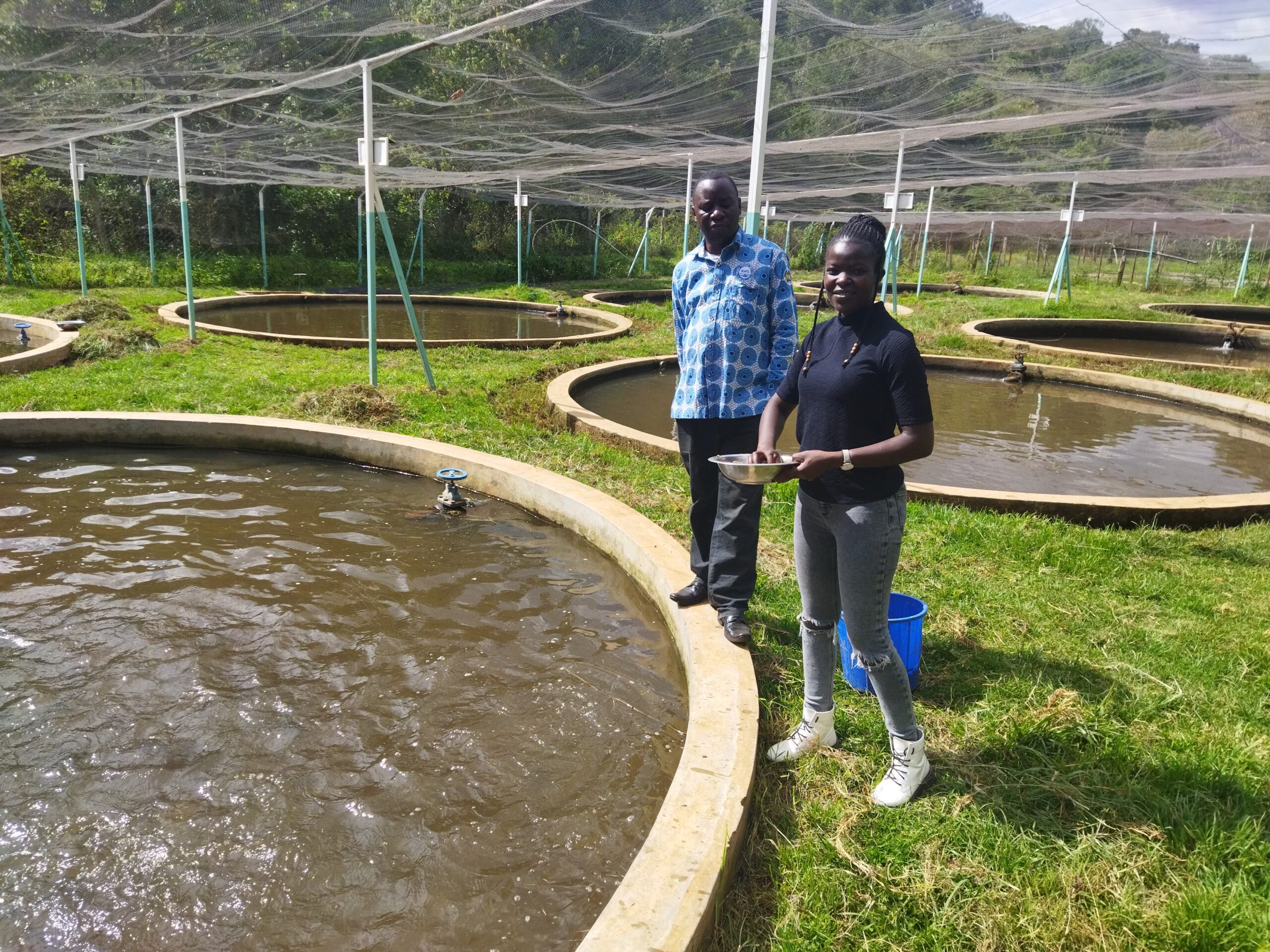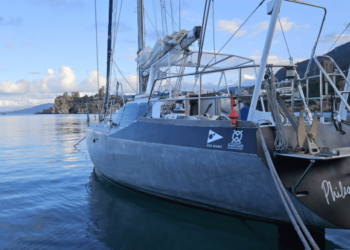Proscovia Alando: empowering women and youth through Samaky Hub – In a rapidly evolving world where sustainability and innovation drive economic development, Samaky Hub is at the forefront of transforming Africa’s aquaculture sector. Founded by Proscovia Alando, the initiative fosters inclusive and sustainable growth, providing women and youth with the resources, knowledge, and networks to thrive in the Blue Economy.
The idea for Samaky Hub emerged from Proscovia’s personal struggles as a young woman in aquaculture. Facing financial constraints, cultural barriers, and limited access to resources, she recognized that many others shared similar challenges. Determined to bridge these gaps, she created Samaky Hub as a platform for collaboration, capacity building, and innovation.
Since its launch, Samaky Hub has trained over 650 farmers across East Africa, focusing on empowering women and youth. The initiative has also introduced waste-to-value solutions, such as Black Soldier Fly farming, converting organic waste into sustainable animal feed and fertilizers. Beyond direct training, Samaky Hub has amplified African voices on global platforms, including COP27, UN forums, and Blue Economy summits, ensuring that underrepresented communities are heard in policy discussions.
One of the most inspiring success stories linked to Samaky Hub is that of Faith Mwende, founder of Sea Ventures. Faith transforms fish scraps into high-quality animal feed, reducing waste and creating economic opportunities. By sharing her story through platforms like The Fish Site, Samaky Hub helped connect Faith with international networks, expanding her business and impact. This reflects the core mission of Samaky Hub: to identify, support, and connect emerging innovators in aquaculture.
A Personal and Professional Journey in Aquaculture
Proscovia’s dedication to aquaculture and the Blue Economy is deeply personal. Growing up in a fishing community on Lake Victoria, she witnessed firsthand the decline in fish stocks, a crisis that threatened food security, livelihoods, and cultural traditions. This drove her to seek sustainable solutions that balance economic needs with environmental conservation.
With an MSc in Sustainable Aquaculture from the University of Stirling, Proscovia developed expertise in eco-friendly farming methods and innovative aquaculture solutions. She has worked with Hatch Blue, Gatsby Africa, and the Global Sustainable Seafood Initiative (GSSI), managing projects that support aquaculture startups and promote collaboration across the value chain.
Her focus remains on strengthening partnerships—uniting small-scale farmers, investors, research institutions, and policymakers—to drive sustainable development in aquaculture.
Challenges and Innovations in African Aquaculture
Proscovia identifies several pressing challenges that hinder the growth of aquaculture in Africa. Many farmers struggle to access quality inputs, such as affordable fish feed and fingerlings, and often face difficulties in reaching markets where they can sell their products at fair prices. The adoption of advanced technology remains another major barrier, as tools like IoT-enabled water quality monitors and automated feeding systems are often too costly and inaccessible for small-scale farmers. At the same time, unsustainable practices, such as the reliance on wild fish stocks for feed, pose serious environmental risks and threaten the long-term viability of the sector.
To tackle these challenges, Samaky Hub promotes affordable and locally adaptable solutions that enhance productivity while protecting natural resources. Initiatives like waste-to-value approaches and precision farming techniques provide farmers with practical, cost-effective ways to improve efficiency and sustainability. Recognizing the growing importance of transparency in the industry, Proscovia also advocates for traceability and blockchain technologies, which can open new market opportunities by ensuring accountability across the value chain. Through collaborations such as the Blue Venture Builder program, she works to connect startups with investors and technology providers, helping bridge the financial and digital divide that often limits innovation in African aquaculture.
A Vision for the Future
Proscovia envisions a thriving and inclusive aquaculture sector in Africa, where:
• Small-scale farmers have access to affordable technology and thriving markets.
• Women and youth play central roles as innovators and leaders.
• Sustainability is integrated into every stage of production, from feed sourcing to farm operations.
For aspiring entrepreneurs or women looking to make an impact in sustainable aquaculture, Proscovia offers this advice: Believe in your vision, even when the odds seem against you. She has faced cultural and financial barriers firsthand, and those challenges taught her resilience and shaped her approach to work. Start small, learn as you go, and don’t be afraid to ask for help—collaboration is your greatest asset.
Proscovia emphasizes the importance of surrounding oneself with the right mentors, partners, or peers, as building connections can open doors to opportunities that were previously unimaginable. She also stresses the importance of staying focused on sustainability, noting that it’s not just about making a profit but creating solutions that benefit communities and protect the environment. When work has purpose, the impact will naturally follow.
Proscovia Alando: empowering women and youth through Samaky Hub












